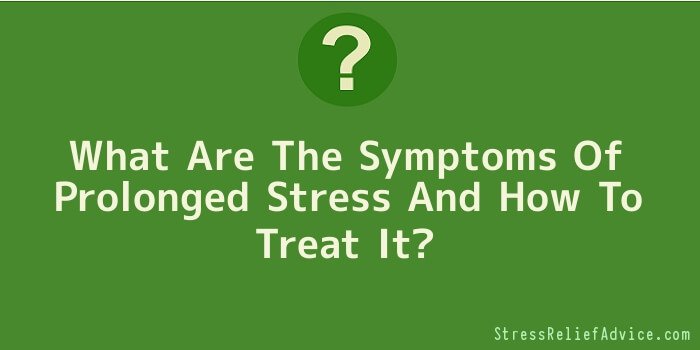
Stress is characterized by an individual’s failure to properly cope with emotional, mental, or physical demands. If gone unchecked, this may develop to an even worse kind called chronic or prolonged stress.
Measured based on the condition between the stressor and its stimulus, stress can be detrimental to an individual mainly because it gives the patient the perception of being under pressure all the time, which develops symptoms manifesting physically. This covers a wide range of occurrences from mild exasperations to extreme dysfunction. Its severity depends on both internal and external factors.
Common Symptoms of Chronic Stress
Individuals who react poorly to stress develop several illnesses that cover different parts of the human body. Although most of these listed below are not always life-threatening, it is still important for patients to pay close attention to these symptoms to know how they will be able to manage each one.
Competitive, hostile, and impatient individuals have a higher risk of developing heart problems following stress. Eating comfort foods, the common stress response, is also not beneficial to a patient suffering from prolonged stress as these foods have high salt and fat content.
Hypertension is the most common effect of prolonged stress. Although asymptomatic, hypertension could be lethal to chronic stress patients as it raises their risks of stroke, kidney failure, and heart attack. Stress gradually increases blood pressure, so prolonged stress may contribute to permanent elevation of a patient’s blood pressure.
Prolonged stress causes the immune system to devastate insulin-producing cells, therefore exposing individuals to type I diabetes.
Psychological disorders are also prevalent in chronic stress patients. Anxiety, Obsessive-Compulsive Disorder (OCD), Panic Disorder (PD) and Post-Traumatic Stress Disorder (PTSD) are some of the most common forms.
Panic attacks are also symptoms of prolonged stress. Patients may experience confusion even in mildly stressful situations.
How to Treat Prolonged Stress?
There is a variety drugs in the market today that is targeted towards the treatment of chronic stress; however, stress may also be treated by a change of diet and lifestyle.
Here are some tips:
Yogurt, cheese, fish, meat, dairy products, and other foods containing protein is the ideal diet for stress patients as these contain catecholamine, better known as the ‘fight-or-flight’ hormone, but it is advisable for patients to also balance their proteins with carbohydrates such as bread and grain.
Wolfberry and Acai berries have also been promoted as treatment for stress because it reinforces and supports the immune system with its antioxidant properties.
